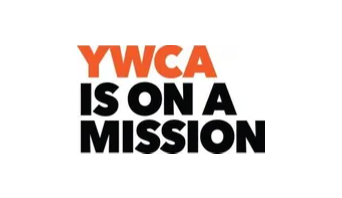About the Victims' Resource Center
No one deserves to be abused.
Abuse is never the victim's fault.
More than 60 percent of women, nearly 25 percent of men, and about half of transgender individuals experience sexual assault in their lifetime.
The Victims' Resource Center provides FREE services that are 100% confidential to help those experiencing domestic violence and sexual assault, including:
* 24-hour Hotline: (1-888-822-6325) Advocates answer the hotline 24-hours a day to help ensure your safety, provide crisis counseling, and complete referrals.
* Emergency Shelter: We provide emergency and temporary housing services for women, men, and children, who are fleeing an unsafe situation. During their stay, they will engage in goal planning, case management, empowerment counseling, and medical advocacy. All services are on an "as needed basis".
* Medical Advocacy and Accompaniment: A trained Advocate can support you during any criminal proceedings regarding domestic violence or sexual assault, no matter what stage of the process you are in. We are here to ensure you have support and know what to expect when you may have to testify against your abuser or perpetrator.
* Legal Advocacy and Accompaniment: A trained Advocate can support you during any criminal proceedings regarding domestic violence or sexual assault, no matter what stage of the process you are in. We are here to ensure you have support and know what to expect when you may have to testify against your abuser or perpetrator.
* Crisis Counseling: You can call our hotline anytime or come to the office during business hours if you need to speak with an Advocate about your safety, concerns, and options.
* Transitional Housing and Outreach Services: We assist individuals who meet the program requirements find stable housing while also providing supportive services throughout the transition to ensure stability.
* Civil Protection Orders: There are several types of civil protection orders in Pennsylvania: PFAs (Protection from Abuse Orders), PFIs (Protection from Intimidation Orders), and SVPO (Sexual Violence Protection Order). All orders have certain relationship requirements established by law. A trained Advocate can help navigate the different civil protection orders that are available.
* Empowerment Counseling: Together with your Advocate, you will create a plan that ensures safety and works on the ability to move forward by gaining control of your life and choosing your own actions.
* Community and Prevention Education Programs: Trained Advocated provide information sessions on a wide range of topics to individuals of all stages. These sessions are age appropriate based on the audience and are free of charge.
LEARN MORE
NO ONE DESERVES TO BE ABUSED, ABUSE IS NEVER THE VICTIMS' FAULT
Dynamics of Domestic Violence
Domestic violence is a pattern of behavior that takes place between family members or intimate partners. Domestic violence can occur between spouses, partners, adults, and their dependent children, same-sex couples, and the elderly and their caregivers. Domestic violence can be physical, sexual, emotional, economic, or psychological actions or threats of actions that influence another person. Domestic violence affects adults and children, regardless of race, religion, socioeconomic status, or educational background, can lead to serious injury or death. Alcohol and drug abuse, mental illness, or previous experiences does not cause domestic violence, though these issues generally do have an impact on relationships.
Other terms used to talk about domestic violence include:
- Domestic abuse
- Intimate partner violence
- Family violence
- Emotional abuse
- Verbal abuse
- Financial abuse
- Dating violence
- Elder abuse of Intimate partner violence in Later Life
These terms do not necessarily mean the same thing, however, each term can shed light on a different aspect of domestic violence.
Sexual Violence/Abuse
Sexual abuse is an umbrella term that includes, but is not limited to:
- Child sexual abuse
- Rape
- Date rape
- Drug-facilitated sexual assault
- Sexual harassment
- Forced prostitution
Sexual abuse involves any unwanted sexual contact where the victim has been forced, coerced, or tricked into participating against their will. This can include the use of force, emotional bargaining, blackmail, or mind games to force sexual contact. Anyone may be a victim, male or female, young or old, rich or poor, and all education levels.
Sexual violence is a crime of power and control; it is NOT about sex.
Over 80% of sexual assaults are committed by someone the victim knows - a relative, friend, or date. The percentage is much higher for child victims, at 93%.
Symptoms of sexual abuse in children may include nightmares, depression, age-inappropriate interest in sexual matters, fear of a particular person, genital infections, sexually transmitted infections, age-inappropriate bed-wetting, and drug and alcohol abuse.
HOW CAN YOU HELP?
- Become Informed: Gather information, attend training, and contact the Victims' Resource Center for educational materials.
- Lend a Sympathetic Ear: Let your friend or loved one know that you care and are willing to listen without judgment or blame. Don't force the issue. Believe them.
- Keep Your Mind and Ears Open: Support the survivors' decisions. Focus on supporting your friend or loved one's ability to make decisions that are best for them under the circumstances. Do not offer advice. Support whatever decision is made, even if you do not agree with it.
- Protect Confidentiality: Helping to protect your friend or loved one includes treating the information shared with you as confidential.
- Guide Them To Services: If your friend or loved one is asking for advice, let them know about the YWCA Victims' Resource Center. Give them our hotline number. Offer to be with them when they call or to accompany them to an appointment with one of our advocates who will explain their rights and options. An Advocate will also help develop a safety plan.
- No one deserves to be abused. Abuse is never the victim's fault.
